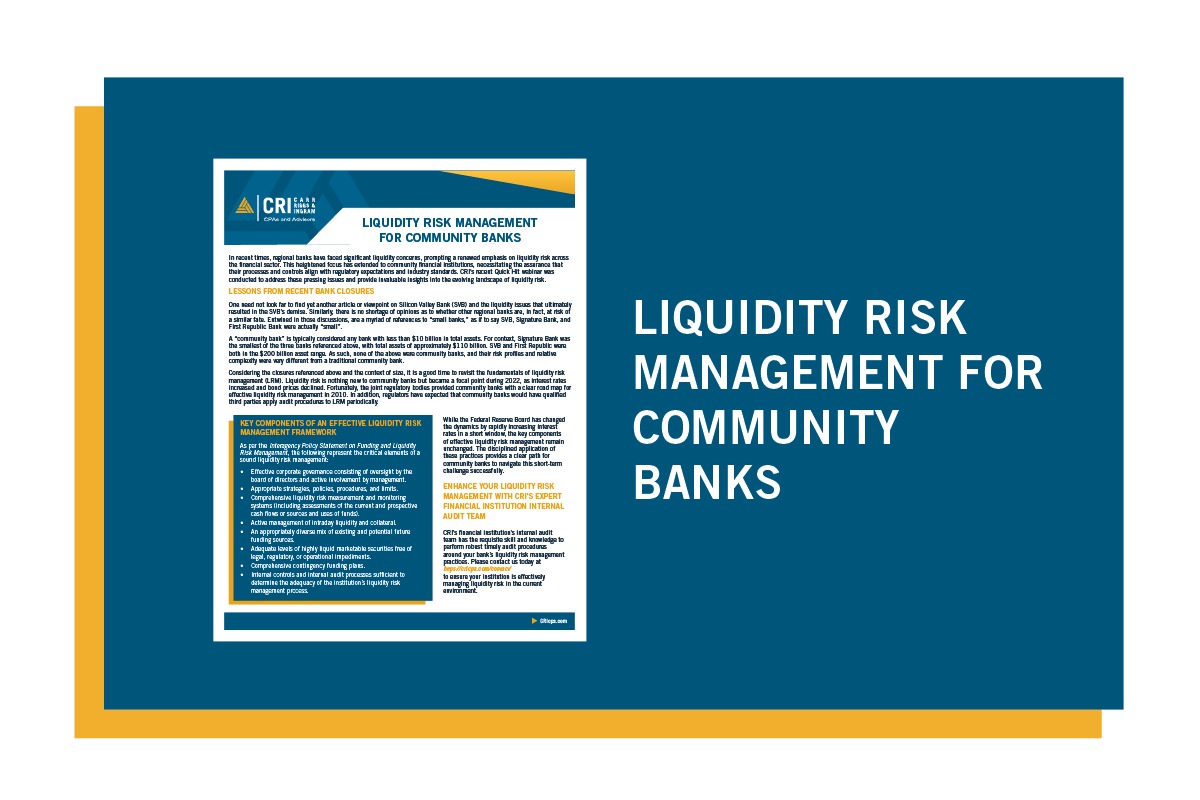Home>Finance>When An Apartment Does A Credit Inquiry What Do They Get?


Finance
When An Apartment Does A Credit Inquiry What Do They Get?
Published: March 5, 2024
When an apartment performs a credit inquiry, they receive a detailed report on your financial history, including your credit score, payment history, and outstanding debts. Understanding what information they obtain can help you prepare for the rental application process.
(Many of the links in this article redirect to a specific reviewed product. Your purchase of these products through affiliate links helps to generate commission for LiveWell, at no extra cost. Learn more)
Table of Contents
Introduction
When you decide to rent an apartment, it's not just about finding the perfect space to call home; it's also about navigating the financial aspects of the process. One crucial step in this journey is the credit inquiry that the apartment complex will conduct as part of the application process. Understanding what information is involved in this credit inquiry and how it can impact your credit score is essential for anyone looking to secure a lease.
The credit inquiry process can seem mysterious and daunting, especially if you're not familiar with how it works. However, with a bit of insight, you can approach this aspect of renting with confidence and clarity. In this article, we'll delve into the intricacies of credit inquiries for apartment rentals, shedding light on what they entail, why they are necessary, and what potential renters can expect from the process. By the end, you'll have a better grasp of the role credit inquiries play in the rental application process and how they can influence your credit standing. Let's begin by exploring what a credit inquiry actually is and why it's a standard part of the apartment rental process.
What is a credit inquiry?
A credit inquiry, also known as a credit check or credit pull, is a process through which a prospective landlord, such as an apartment complex, requests to view your credit report from one of the major credit bureaus. This inquiry provides the landlord with insight into your financial history, including your payment history, outstanding debts, and other relevant financial information.
There are two types of credit inquiries: hard inquiries and soft inquiries. A hard inquiry occurs when a potential creditor, such as a landlord or lender, reviews your credit report as part of a decision-making process. This type of inquiry can impact your credit score and appears on your credit report. On the other hand, a soft inquiry, often initiated for background checks or pre-approved credit offers, does not affect your credit score and may not be visible to potential lenders or landlords.
When you apply for an apartment, the landlord or property management company will typically request a hard inquiry to assess your creditworthiness and determine the level of financial risk involved in renting to you. Understanding the nature of credit inquiries and their implications is crucial for anyone entering the apartment rental market, as it allows you to anticipate the impact on your credit score and take proactive steps to present yourself as a reliable tenant.
Why do apartments do credit inquiries?
Apartment complexes conduct credit inquiries as part of their tenant screening process to evaluate the financial responsibility and reliability of potential renters. Landlords and property management companies use this information to assess the likelihood of on-time rent payments and overall financial stability. By reviewing an applicant’s credit history, landlords can gain valuable insights into their past financial behavior, including their track record of meeting financial obligations and managing debt.
From the perspective of apartment managers and property owners, conducting credit inquiries helps mitigate the risk of renting to individuals who may have a history of late payments, outstanding debts, or financial instability. By identifying potential red flags through credit checks, landlords can make more informed decisions when selecting tenants, ultimately aiming to maintain a stable and financially sound community within their rental properties.
Moreover, for landlords and property management companies, the financial health and stability of their tenants can directly impact their own financial well-being. Reliable tenants who consistently meet their rent obligations contribute to a steady income stream for property owners, enabling them to maintain and improve their rental properties. By conducting credit inquiries, landlords can proactively assess the financial risk associated with each potential tenant, promoting a more secure and sustainable rental environment.
Ultimately, credit inquiries serve as a tool for apartment complexes to make informed decisions when evaluating prospective tenants. By understanding the financial background of applicants, landlords can better assess the likelihood of timely rent payments and responsible tenancy, contributing to the overall stability and success of their rental properties.
What information do apartments get from a credit inquiry?
When an apartment complex conducts a credit inquiry, they gain access to a range of important financial information about the applicant. This information provides valuable insights into the individual’s credit history, financial behavior, and overall creditworthiness. Here are the key types of information that apartments typically obtain from a credit inquiry:
- Payment History: Landlords can view an applicant’s history of on-time payments, late payments, and any instances of delinquency. A consistent record of timely payments reflects positively on the applicant’s financial responsibility.
- Outstanding Debts: Credit inquiries reveal the amount of outstanding debt carried by the applicant, including credit card balances, loans, and other financial obligations. This information helps landlords assess the individual’s financial obligations and debt management practices.
- Credit Utilization: The credit inquiry provides insights into the applicant’s credit utilization ratio, which compares the amount of credit used to the total credit available. A high credit utilization ratio may indicate financial strain, while a lower ratio suggests responsible credit management.
- Public Records: Landlords can access public records such as bankruptcies, foreclosures, and tax liens, which may impact the applicant’s financial stability and creditworthiness.
- Credit Score: The credit report obtained through the inquiry includes the applicant’s credit score, providing a numerical representation of their creditworthiness based on the information in the report. This score serves as a key indicator for landlords when evaluating potential tenants.
By reviewing these crucial details, apartment complexes can form a comprehensive understanding of an applicant’s financial background and assess the level of risk associated with renting to them. This information enables landlords to make informed decisions regarding lease approvals and helps them evaluate the likelihood of consistent and reliable rent payments from prospective tenants.
How does a credit inquiry affect your credit score?
When an apartment complex conducts a credit inquiry as part of the rental application process, it results in a hard inquiry on your credit report. It’s important to understand how this hard inquiry can impact your credit score and what factors contribute to its effect.
A hard inquiry typically has a minor and temporary impact on your credit score. It may lead to a slight decrease in your score, usually by a few points, and this decrease is often short-lived. The impact of a hard inquiry on your credit score is influenced by several factors:
- Frequency of Inquiries: Multiple hard inquiries within a short timeframe can have a more pronounced effect on your credit score, as it may indicate a higher level of risk to potential creditors or landlords.
- Credit History and Overall Financial Health: The impact of a single hard inquiry can vary based on your overall credit history and financial standing. For individuals with a limited credit history or a few credit accounts, the impact of a hard inquiry may be more noticeable.
- Relevance to Credit Applications: Credit scoring models take into account the nature of the inquiry. In the case of apartment rental inquiries, the impact on your credit score may be viewed differently than inquiries related to credit card or loan applications.
It’s important to note that the impact of a hard inquiry on your credit score is relatively minor compared to other factors that heavily influence your score, such as payment history and credit utilization. Additionally, credit scoring models are designed to recognize that consumers may seek credit for various reasons, including renting an apartment, and they often account for this in their scoring algorithms.
While a hard inquiry may result in a temporary dip in your credit score, the impact is generally modest, and your score is likely to rebound over time, especially as you continue to demonstrate responsible credit management. Understanding the nuances of credit inquiries and their effects on your credit score can empower you to make informed decisions when applying for rental accommodations and managing your overall financial health.
Can you rent an apartment with bad credit?
Having bad credit can indeed present challenges when seeking to rent an apartment, as landlords often use credit history as a key factor in their tenant selection process. However, the impact of bad credit on your ability to secure a rental can vary based on several factors, and there are strategies that individuals with less-than-ideal credit can employ to improve their chances of being approved for an apartment lease.
While a history of poor credit may make it more difficult to rent an apartment, it does not necessarily make it impossible. Landlords and property management companies consider various aspects of an applicant’s financial profile, and bad credit is just one factor among many. Here are some considerations for individuals with bad credit who are seeking to rent an apartment:
- Communicate and Provide Context: If your credit history has been impacted by specific circumstances, such as a period of unemployment, medical expenses, or other challenges, consider communicating this information to the landlord. Providing context for your credit issues can offer landlords a more complete understanding of your financial situation.
- Offer a Larger Security Deposit: In some cases, offering a larger security deposit can reassure landlords and mitigate their concerns about your credit history. A higher deposit can serve as a form of financial security for the landlord if they have reservations about your creditworthiness.
- Provide Rental References: If you have a history of timely rent payments and positive rental experiences, offering references from previous landlords can bolster your application. Demonstrating a strong rental track record can offset concerns about your credit history.
- Seek a Co-Signer or Guarantor: If possible, enlisting a co-signer with a strong credit history can enhance your application. A co-signer agrees to take on financial responsibility for the lease if you are unable to meet your obligations, providing reassurance to the landlord.
- Be Transparent and Proactive: Transparency and proactive communication can go a long way. If you anticipate that your credit history may be a concern, address it openly with the landlord and emphasize your commitment to maintaining timely rent payments and being a responsible tenant.
While bad credit can pose challenges in the apartment rental process, proactive measures and effective communication can help mitigate its impact. By addressing potential concerns head-on and offering additional assurances, individuals with bad credit can improve their prospects of securing a lease and finding a suitable rental accommodation.
Conclusion
Understanding the role of credit inquiries in the apartment rental process is essential for anyone navigating the journey of finding a new place to call home. From the nature of credit inquiries to their impact on credit scores and the potential challenges of renting with bad credit, this article has shed light on the intricacies of credit assessments in the context of apartment rentals.
By gaining insight into the information obtained through credit inquiries, prospective renters can better comprehend the factors that landlords consider when evaluating their financial backgrounds. This understanding empowers individuals to take proactive steps to present themselves as reliable and responsible tenants, whether through transparent communication, offering additional assurances, or providing context for past credit challenges.
While credit inquiries are a standard part of the rental application process, they are just one aspect of the overall evaluation that landlords undertake when selecting tenants. By approaching the rental process with a comprehensive understanding of credit inquiries and their implications, individuals can navigate the process with confidence and work towards securing a lease that aligns with their housing needs.
Ultimately, the interplay between credit inquiries, credit scores, and the rental application process underscores the importance of financial responsibility and proactive communication when seeking to rent an apartment. By leveraging this knowledge and adopting a strategic approach, individuals can enhance their prospects of securing a lease and embarking on a positive and successful tenancy experience.














